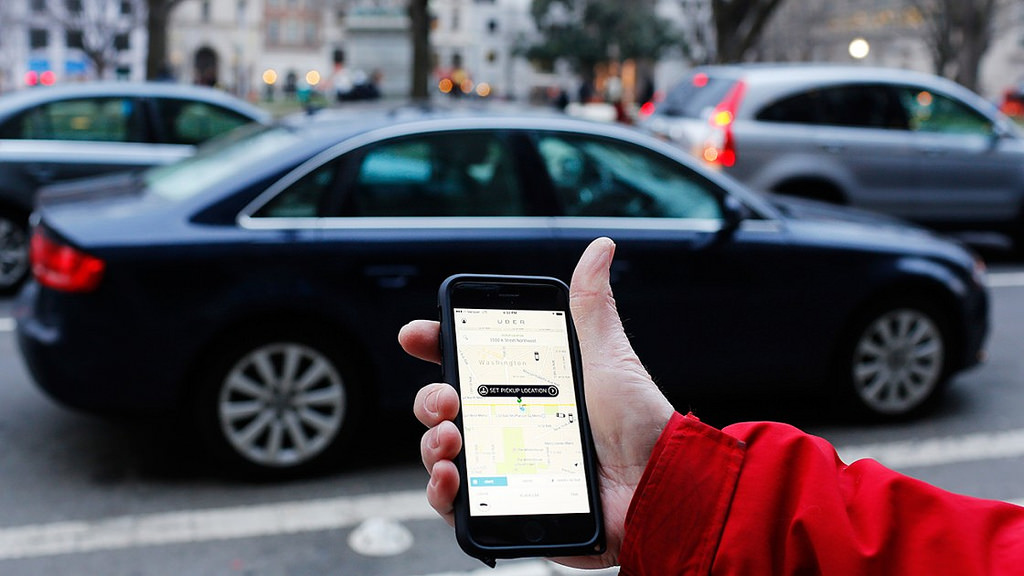An Employment Tribunal has just found that Uber, the well-known car hire platform, has been operating in breach of its 40,000 drivers’ rights by failing to ensure its workers are paid the National Minimum Wage or receive paid holiday.
Uber, which operates through a smartphone app, argued that it was a technology company which acted as a linking platform between self-employed drivers and passengers, not a taxi company that employs taxi drivers. Therefore it said that employment laws did not apply to its drivers.
But the Tribunal disagreed. This landmark ruling could potentially impact the rights of thousands of Uber drivers, not to mention countless other workers who are connected with companies through apps and work in the ‘gig economy’.
Video introduction
The issues
UK employment laws entitle workers to be paid at least the minimum wage (£6.70 per hour) and to have a certain number of days of paid holiday per year. Yet some Uber drivers found that, after the costs of running a car have been deducted, they took home less than the minimum wage. They were also not entitled to take paid holiday. So they launched a claim against Uber.
However Uber resisted the claim, saying:
- The drivers were self-employed, so Uber were not bound by employment laws.
- Under the terms of Uber’s agreement with drivers, drivers could only bring claims against Uber in the Netherlands (where Uber has its European headquarters in the Netherlands), and that drivers in the UK could therefore only seek a remedy in the Dutch courts.
The Uber drivers argued that:
- They are workers.
- Because they work in the UK they are entitled to benefit from UK employment laws.
- Uber’s conduct raised serious health and safety issues as Uber does not ensure its drivers take rest breaks or work a maximum number of hours per week. This potentially poses a risk to anyone on the roads given that, according to Uber’s CEO, there will be 42,000 Uber drivers in London in 2016.
The Tribunal agreed with the drivers.
The case hinged on two things.
The nature of Uber’s business
Uber said that they are a technology company which acts as a linking platform between self-employed drivers and passengers, not a taxi company that employs taxi drivers.
The Tribunal disagreed. It said that a taxi service is at the heart of Uber’s business. The company also holds a Private Hire Vehicle Operator’s Licence for London. The language that Uber uses about itself – such as calling the drivers “our drivers” and claiming to generate “tens of thousands of jobs in the UK” – reinforces the notion that they are a taxi company employing drivers.
The control it has over its drivers

The Tribunal found that Uber exercises a level of control over its drivers that means they cannot be called self-employed. Some of the examples given by the Tribunal were:
- Uber interviews and recruits drivers.
- Uber claims it assists self-employed drivers with growing their businesses by providing drivers with ‘leads’. The Tribunal said the drivers have no opportunities to grow their own business (other than by spending more hours in the car) or negotiate a higher fare with customers; trips are offered and accepted strictly on Uber’s terms.
- Uber controls key information (such as the passenger’s surname, contact details and intended destination) which drivers only find out after they have accepted a job.
- Uber drivers are rated by passengers (using 1-5 ‘stars’) and these ratings are used by Uber to ‘weed out’ low performing workers. This mirrors an employer-employee relationship.
What happens next
If this judgment stands then all Uber drivers will be entitled to rights granted to people who are classed as “workers” in employment law, such as being paid National Minimum Wage, receiving paid holiday and paid rest breaks.
But it could affect many more thousands of people. Many other companies that operate similar ‘platforms’ through an app class their workers as self-employed, so removing the obligation to provide workers with minimum wages or holiday. Workers in this “gig economy” could use this landmark ruling to challenge their status and claim they are workers or employees.
But. The judgment will inevitably be appealed. There may be as many as three further stages: the Employment Appeal Tribunal, the Court of Appeal and the Supreme Court. With a case of this importance, it would not be surprising if this gets to the Supreme Court. We’ll keep you posted here at RightsInfo.
- Read the full judgment here
- For the Key Laws That Protect Workers’ Rights, click here
- And our article on the employment laws that could be at risk if we leave the EU
- That’s Uber, but what about Sports Direct? Read about its troubles and whether human rights could help







